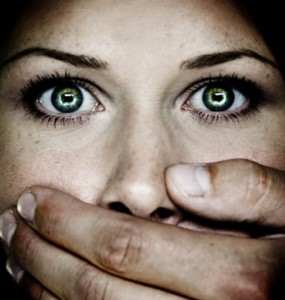A perfect storm of slashed funding, strapped donors, underwater mortgages and high unemployment is causing battered women’s shelters to turn victims away at a time when the need may is greater than usual.
Domestic violence has risen during the economic downturn, and services are eroding.
According to the National Center for Victims of Crime, 92 percent of victim service providers have seen an increased demand in the last year, while 84 percent reported that cutbacks in funding were directly affecting their work.
In Florida, the state’s 42 domestic violence shelters had to turn away 3,352 women in the last fiscal year, said Leisa Wiseman, director of communications and government affairs for the Florida Coalition Against Domestic Violence.
“The need continues to grow,” said Wiseman. “Sad as it is, there are times when survivors have to be turned away from domestic violence shelters…[It] is a key issue in homelessness.”
Florida’s domestic violence shelter funding is figured by formula and has remained largely constant throughout the downturn. An additional $1 million for services was provided in recurring general revenue in the budget Gov. Rick Scott signed last week. But the need has outgrown the incoming money.
Also last week, Scott signed into law another measure (HB 7093), which limits the role of the Department of Children and Families in certifying domestic violence shelters, transferring some of those responsibilities to the Coalition Against Domestic Violence. It also names the organization specifically as the state’s partner in coordinating and administering the prevention of domestic violence.
But Scott also noted that while he was signing the bill, the FCADV might not have that privilege forever.
“I believe it is inappropriate to designate in statute a specific private entity as the recipient of state funds. Such a practice restricts the competitive procurement process,” Scott wrote in a message about the bill signing. Scott said he plans to ask the 2013 Legislature to replace FCADV in the statute with “a general reference to a nonprofit organization.”
Meanwhile, women who do secure a shelter bed are finding it harder to move on and give up their beds to others in danger.
“The women in the shelter are staying longer because they can’t get jobs and they can’t find affordable housing,” said Linda Osmundson, director of Community Action Stops Abuse the shelter in St. Petersburg. With just 30 beds in an urban area, that shelter has turned away 2,000 women in the last two fiscal years, Osmundson said.
What’s more, said Wiseman, housing for abuse victims must be safe as well as affordable – which tends to increase the expense. And given that abusers tend to keep tight control of the family finances, battered women rarely have much credit or job history with which to pay a deposit on rent or utilities. That makes it all the harder for them to find housing.
“What may be affordable may not be safe,” said Wiseman.
Additionally, the housing crisis has forced more couples who might have separated to stay together in a violent relationship, said Rita Smith, director of the National Coalition Against Domestic Violence.
Florida is ranked third nationwide in foreclosures.
Meanwhile, providers say funding from the federal government to their local city and county governments is drying up. Last September, when Florida shelters participated in the 2011 National Census of Domestic Violence Services, 45 percent reported insufficient funding for needed programs, 31 percent reported no available beds or funding for hotels, and 29 percent reported not enough staff.
That’s a nationwide trend as well, said Smith.
“During the recession, foundations that get their money from stock market profits saw a decrease in the money they were earning there, so they cut the amount of money they were funding in the community,” she said. “Corporations started to horde their cash during the recession. And individuals, of course, didn’t have enough money, so individual donors weren’t able to give as much money.”
Osmundson, the St. Petersburg shelter’s director for 23 years, said her budget has gone from being 75 percent grant-funded to 55 percent during the downturn. “So that’s that much more we have to raise,” she said, noting that Florida ranks 48th nationally in charitable giving, according to the Chronicle of Philanthropy.
“You’re not seeing as many contributors or, frankly, as many grant-making opportunities,” Wiseman said.
Since September 2008, three of four domestic violence shelters report an increase in women seeking help with an abuser, and 73 percent attribute the increase to “financial issues” in those relationships.
The long-term consequences of a spike in domestic violence are also likely to cost taxpayers.
In the last fiscal year, for instance, 47 percent of the residents of Florida domestic violence shelters were children. Studies show that children who witness spouse abuse are at greater risk for mental health and substance abuse problems, suicide and involvement with the criminal justice system – to say nothing of future roles as batterers or victims.
Last year Florida’s domestic violence shelters helped victims prepare 82,000 safety plans in case they found the opportunity to leave.
Smith, of the national coalition, said if the economy doesn’t turn around, and money for shelters doesn’t increase, the problem will worsen.
“Programs have already cut back on services to try to get through this downturn,” Smith said. “And if we continue to cut their funds, then they’re not going to be cutting services, they’re going to be closing their doors.”
By Margie Menzel




Stand up and Break the Silence against Domestic Violence.